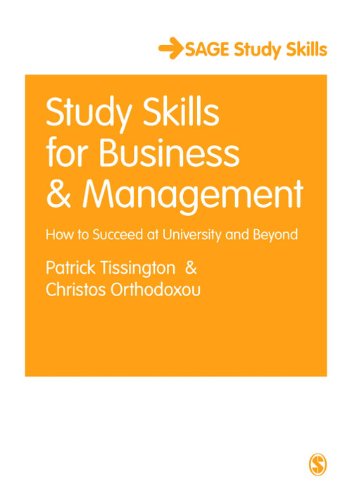
This blog focusses on the actual exam itself – revision is covered here.
First of all, I need to emphasise that I know only too well how stressful exams can be. Most academics have flown through school and university and found exams to be an enjoyable way of showing how much they know. Yes. People like that do exist. But I am definitely not one of them! I recall exams where I felt clueless, embarrassed and that my world had ended. Sometimes it was inevitable as I hadn’t done the work but other times, I had tried my best to prepare but a crashing realisation that I had screwed up came the moment I turned the paper over. This doesn’t have to be you!
Preparing for the exam
Revision – the last 24 hours
The previous blog talked you through how to do your revision long term, but this advice is for the night before. If you are lucky, you may only have one exam on the day so you can focus on the one subject. If you have more than one, you’ll need to divide your time. And there is a fundamental psychological fact about learning which helps here. It’s called the Recency Effect because it is easier to recall the most recent thing you learned. So switch between subjects but make sure you are learning the relevant material for the first exam directly before that one. Have your last minute notes prepared for your second exam so you can switch topics after the first exam.
In fact, this memory effect is called Primacy and Recency because you are more likely to remember the first and last item in the series. So, during your revision it is a good idea to mix up the order you work on things. And this is also true on the night before. Also, there is usually something that you don’t remember right all the time and this is the last thing you should be thinking of before you enter the exam room. I used to distil all the most important facts down to a single post card that I would read on the journey in to the exam (of course don’t do this while driving!). And then I wouldn’t even talk to other students outside the exam hall, just kept reading my post card. I tend to find that because people have had different approaches to revision, conversations about what other people had or hadn’t learned only served to confuse and stress. There are times to be outgoing and social, but this isn’t one of them. Anti-social perhaps but I found it helpful.
Now for some planning. Check on the location of the exam room, check with your fellow students to be 100% sure you have got it right. If it is in a building you haven’t been to before, I would suggest you actually go to it and find exactly where it is. This avoids a further potential source of stress if you find the journey takes longer than you thought. And this brings me to probably the most important thing for you to do. Get there early. Even if it is before the building opens, you could get there and then grab a coffee or something to eat nearby. And then you will have time to calm yourself and read your one page notes (yet) again.
The night before is when you should really get into the exam zone. Eat and drink sensibly and sleep. keep calm and stick to your plan.
In the exam
So you go into the exam, settle at your desk and try to calm yourself. Most people find it useful to concentrate on breathing deeply and slowly. This is a great way of calming and avoiding panic. Perhaps you aren’t too stressed by exams but most of us are and this sort of exercise is really helpful.
And so the examiner says you can start. At this point you will probably be aware of someone near you who turns the paper over and starts writing immediately. This is almost certainly a mistake – they are unlikely to be writing anything that is gaining them marks. The one exception might be if you have a particular theory that you want to make sure you don’t forget so you might want to just write that down before you even read the questions.
Reading the questions is a vital part of your performance. First remind yourself of the rubric – how many questions do you have to answer? Are there different sections? How may marks does each question have? Make sure you are smart about how you answer questions putting more them into the parts that will deliver you the most marks.
When writing, you should be thinking about how you can demonstrate to the marker that you really understand the theory relevant to the questions AND that you have answered the question. Part of this is to be able to quote theory correctly including the date. I’ve never heard of an institution that requires students to provide a list of references at the end of the exam, but getting the name and date right in the text shows you know your stuff.
And now for the top 6 mistakes
- Not answering the question set. But as you make your plan, you need to refer to the question repeatedly. The single most common reason for failing an exam is not answering the question set. Does the question ask for compare and contrast – you MUST find areas of similarity AND difference in order to pass. Does the question ask for two theories or three? Does it ask you to come to a conclusion? Is there more than one part to the question?
- Choosing the wrong question. It may seem at first glance that you can answer a particular question. But if you don’t plan properly, you may find you run out of material before you have answered it fully. So take some time to read all the questions before choosing the ones you are going to answer (assuming there is a choice of course!).
- Panicking. I have had the experience of turning over a paper and then realising I can’t answer any of the questions. The advice here is to slow down and find a question that you might be able to answer at least part of. Work on that one first – jot down and a plan and even start to answer it. You will usually find that you can in fact answer enough questions if you think about it. Perhaps the type of question you expected or wanted hasn’t shown up. But if you keep calm, you can work out how to pick off the marks you need.
- Writing a long winded introduction. It helps if you have created a decent plan to get right into the meat of the essay. But so often we see opening sentences that meander around making bland general statements that don’t help the marker understand what you are going to write; neither do they actually gain any marks. So use the introduction to set out what you are going to write and perhaps define some terms you are going to us.
- Not describing theories you use in your essay. In my exams, I expect students to describe theories they are referring to before going to answer the question. In effect, the exam question is a place where you are being invited to show off your knowledge. But of course, you only gain any marks for showing off the knowledge that the question refers to. Unless the question is “write everything you know about…” , then you need to be focussed.
- Spending too much time on one question. So often I can tell that a student has spent too long on one question and then had to rush another. And really quite often the question that has soaked up all the time hasn’t been answered all that well. So be ruthless in moving on to the next question when you have used the allocated time. If you manage to finish later questions quicker than planned, you can always come back and finish it off later.
So that’s it! Being methodical about your preparation and taking these strategies into the exam will help you get into the frame of mind where you can give your best performance. I do hope this advice helps reduce the stress of exams. There is more about study in this book which covers other ideas about exams as well as everything else you need to know about studying at University.




2 thoughts on “Exams – the top 6 most common mistakes and how to avoid them”